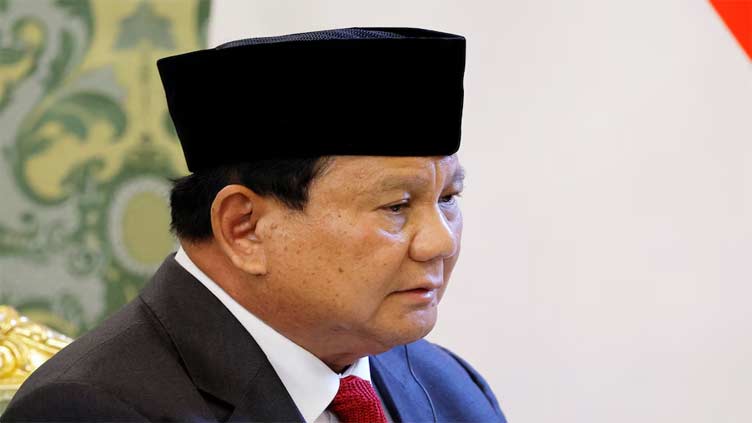Indonesia's Prabowo will stick to approved 2025 budget spending, aide says

World
Prabowo won February's election by a convincing margin
JAKARTA (Reuters) - Indonesia's President-elect Prabowo Subianto will keep to budget spending levels already approved for 2025, a senior member of his incoming administration told Reuters, after worries about the leader's fiscal prudence unsettled investors.
The approved plans can fund two key election pledges, boosting food output and free school meals, "within principles of fiscal prudence", said Thomas Djiwandono, who was appointed deputy finance minister in July to oversee the 2025 budget.
"If there is a concern that the budget will be changed because Mr. Prabowo needs more funds, that is not true," Djiwandono, who is Prabowo's nephew, said in an interview.
"It was designed precisely in order to enable him to push forward within that deficit (target)."
Passed by parliament last week, the 2025 budget provides for spending of 3,621 trillion rupiah ($239 billion), which represents an increase of 6% over this year.
The budget deficit is forecast at 2.53% of GDP, down from an estimated 2.70% in 2024 and comfortably below a limit of 3% legislated in Southeast Asia's largest economy.
Ahead of his Oct 20 inauguration, foreign investors have been watching Prabowo's fiscal stance closely, worried that his comments had suggested an appetite for higher debt and potential easing of fiscal rules.
The 2025 budget includes 71 trillion rupiah for school meals for 20 million students to battle malnutrition, and 15 trillion rupiah to beef up Indonesia's capacity to produce staples such as rice and sugar.
Spending on these projects could increase in future years depending on their results, Djiwandono said.

The school meals programme is expected to be widened in coming years to cover more than 80 million children and pregnant women across the archipelago, at a total estimated annual cost of 450 trillion rupiah.
The budget includes a "discretionary fund" that Djiwandono said could be used to fund an expansion of the cabinet and set up new institutions, adding that budget implications of such spending would be manageable.
Analysts have said Prabowo's plans to add about 10 ministries and government agencies would amount to bureaucratic bloat, creating senior jobs for politicians in his large coalition, grouping seven of the eight parties in parliament.
OPEN TO FOREIGN INVESTORS
Prabowo, who won February's election by a convincing margin, has pledged to lift economic growth to 8% during his five-year term, from about 5% this year, and add millions of jobs.
Djiwandono said he could reveal little of Prabowo's economic plans or cabinet appointments, but underlined that the new administration would be open to foreign investment.
"We have to provide new jobs, whether in the digital sector or energy transition," he said. "These are all the things that should bring in capital, because we need the capital and that will provide the growth."
He added, "Prabowo will be very open to (foreign investment)."
One area in which Prabowo seeks foreign investment is public-private partnership in management of airports and sea ports, Djiwandono said.


